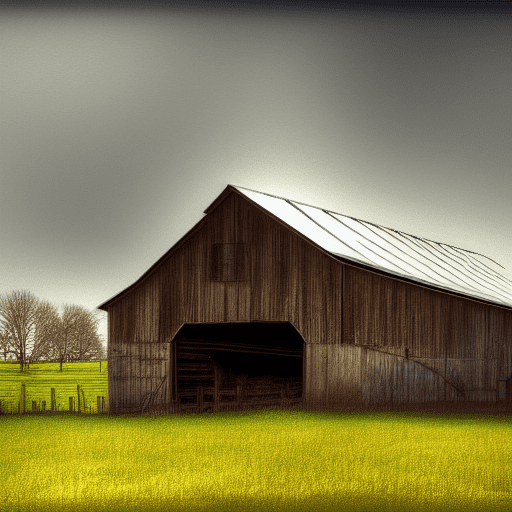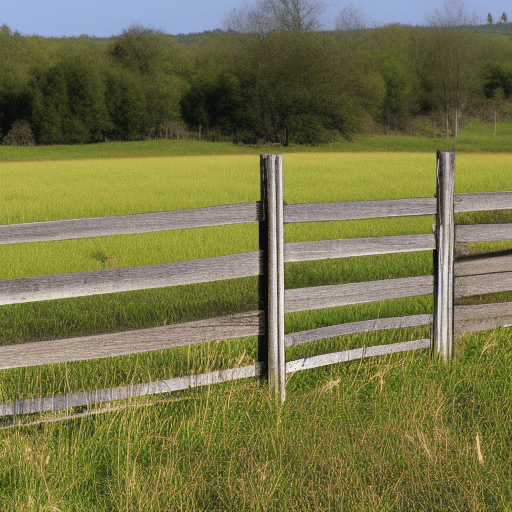Think about any large purchase you’ve made recently. Chances are, you’ve asked yourself questions before deciding to buy it. Whether a house, a car, an appliance, or anything else, you want information before you make your final decision about a big purchase.
Is the object you’re buying in usable condition? Are there any hidden hazards that threaten your investment? Does the owner really own whatever it is they’re trying to sell?
These important questions always need answers before you know you’re making a sound purchase. In the long term, addressing them protects your investment.
Land buyers ask themselves similar questions before purchasing your land.
When selling, knowing exactly which information potential land buyers seek lets you remove friction from the buying process. Keeping that information readily available boosts buyer confidence and increases the likelihood of selling land your land quickly.
So, what are land buyers looking for before they make a purchase? Find the answers below!
Consideration 1: Who Really Owns The Land?
The first consideration for any land buyer is understanding who really owns the land. The landowner may not be the person who is trying to sell it. There could be several reasons for this, but the most common one is that the land was inherited.
When land is inherited, multiple owners may be listed on the deed. To sell the land, all owners listed on the deed must sign off on the sale. The land can’t be sold if even one owner is not in agreement.
When selling inherited land, it’s essential to understand who all the owners are and whether they’re willing to sell. Having this information on-hand for potential land buyers reduces doubts about whether or not the land in question really belongs to you.
Consideration 2: Is The Property The Same Size As Advertised?
The next consideration for land buyers is the size of the land. This may seem silly, but you’d be surprised how often land is advertised as being a certain size when it’s much smaller.
There are a few reasons this might happen:
– The property owner could be measuring from the center of the lot instead of from the property line.
– There could be easements or right-of-ways that take up part of the land.
– The land might not be rectangular, so it’s difficult to measure.
As a landowner, it’s important to know exactly how big your land is before selling it. If the land is smaller than your potential buyer initially thought, it could be a dealbreaker.
To avoid surprises, have a surveyor come out and measure the land before putting it on the market. This gives you an accurate measurement for your listings and marketing materials. It will also give potential buyers peace of mind knowing they’re getting exactly what they expect.
Consideration 3: Does It Contain Access To Infrastructure?
The third consideration for land buyers is whether or not the land has access to infrastructure. This includes things like roads, power lines, water, and sewage.
Buildable land must have access to at least a few of these things. The new landowner will be responsible for installing any that aren’t already on the property, which can be a costly and time-consuming process. If you want to sell your land fast, capitalize on any existing infrastructure by mentioning it directly in your listing.
If you’re looking to sell undeveloped land quickly, it’s best to find a buyer who doesn’t mind installing infrastructure. You could also look into installation yourself, but this generally requires approval from local authorities, which can be a lengthy process.
Consideration 4: Is The Water Potable?
Another consideration for land buyers is whether the water on the property is potable. In other words, is it safe to drink?
The answer to this question depends on a few factors, including the location of the land and what kind of water source it has. For example, land with a well will need to have the well water tested before it can be determined if it’s safe to drink.
If you’re not sure whether or not the water on your land is potable, the best thing to do is to have it tested by a professional. This will give you an accurate answer to share with potential buyers to encourage them to follow through with their purchase. Keep copies of the test results that you can share with potential buyers if they ask about water quality.
Consideration 5: What’s The Investment Potential?
Another angle for land buyers to consider is the land’s investment potential. How much will the land be worth in the future? Are there any features or resources that could influence its value later on?
Several factors can affect the answer to this question, including location, infrastructure, and zoning.
As a landowner, it’s important to research and understand your land’s investment potential before putting it on the market. This will help you price it correctly and attract land buyers interested in its long-term value.
Consideration 6: How Close Is It To Neighbors And Local Amenities?
Land buyers will often ask questions about how close the land is to neighbors and local amenities like shopping and restaurants.
Depending on their reasons for purchasing, some land buyers may seek land in a more secluded area. Others want land that’s close to conveniences like stores and schools. There’s no right or wrong answer here – it all depends on the land buyer’s individual needs and preferences.
As a landowner, be aware of these considerations so you can market your land accordingly. If you’re unsure what kind of land buyers you’re looking for, speak with a trusted source who specializes in land sales to identify your ideal buyer.
Consideration 7: Are There Zoning Or Development Restrictions?
While they exist just about everywhere, these restrictions vary depending on location and local government regulations.
Development restrictions may dictate how the land can be developed by permitting or restricting the construction of particular building types, meaning zoning restrictions may limit what buyers can do with the land, such as build a home or operate a business.
Before listing your land for sale, research your area’s zoning and development restrictions. What types of structures are(n’t) permitted?
Think about this information as you post your listing to ensure you’re targeting the right land buyers.
Consideration 8: Are There Any Environmental Threats To The Property?
Nobody wants to buy land that’s going to be destroyed within a short time.
Things like sinkholes, erosion, and wildfires can all threaten land and the structures built on it. If there are environmental threats to your land, it’s important to mention them in your listing so that land buyers fully understand the risks associated with their purchase.
If your land is subject to potential environmental hazards, don’t worry – it doesn’t mean it’s unsellable! This land can often still be sold, but likely for a lower price than what’s listed.
Consideration 9: What’s In The Soil?
The soil on your land can also be a dealbreaker for people who want to buy it. Different types of plants and crops grow better in various types of soils, so land buyers need to know what they’re working with.
Not all land is created equal – some areas have richer, more nutrient-dense soil than others, making them better for growing specific crops. If you’re selling land that you think is ideal for agricultural development, getting your soil tested could provide you with the last bit of information that persuades a buyer to close.
Get An Offer For Your Land Today
Keep these considerations in mind as you list your land for sale, and you’ll be sure to attract serious land buyers ready to make an offer.
If you’re still having trouble pricing and selling your unwanted land, contact Dow Land today and request a purchase offer with no obligation to sell. We’re land buyers who specialize in purchasing land quickly and efficiently, and we’re always happy to answer any questions you may have about the process.


